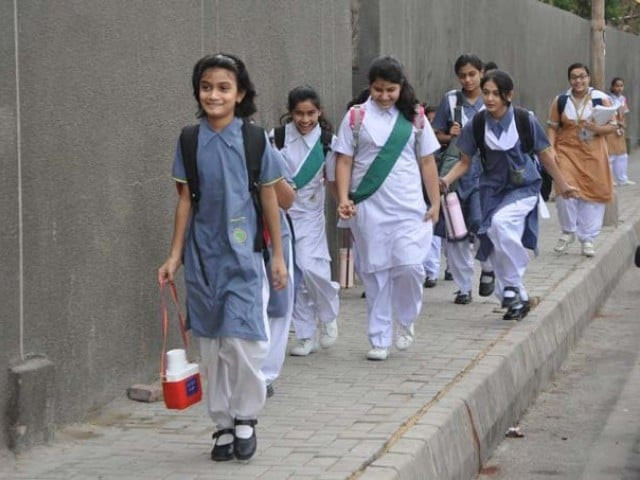Financing girls’ education: ‘Devise fairer, pro-poor tax system’
Lawmakers unite on making education for girls a political priority

Lawmakers unite on making education for girls a political priority. PHOTO: EXPRESS/FILE
They aligned the cause of girls’ education with a pro-poor and equitable system of taxation.
The provincial lawmakers and senators had gathered at the launch of a research report, titled Domestic Resource Mobilisation in Pakistan: Exploring Avenues for Financing Girls’ Education.
The report was prepared by Oxfam in Pakistan (OiP) and Institute of Social and Policy Sciences (I-SAPS).
In the context of girls’ education service delivery, explained I-SAPS research fellow Ahmad Ali, Pakistan at the movement is facing a serious challenge with approximately 24 million out of school children of whom a majority are girls, the huge backlog on the provision of missing facilities in schools, and declining quality of education.
Girls’ net enrollment rates stood at around 50 per cent only, which was much lower when compared to that of the male net enrolment rate.
Similarly, he added, Pakistan had the world’s third-highest number of new-born deaths (194,000 in 2010). The maternal mortality in rural areas was nearly twice as much as in urban areas with 319 women out of every 100,000 dying due to pregnancy-related complications in rural areas in contrast to 175 in urban areas.
APS executive director Dr Salman Humayun said that Pakistan’s resource base is quite narrow with only 0.3 per cent of the population paying income tax.
“Out of around 7 million eligible taxpayers, only 500,000 are taxpayers,” he said. As an example, he pointed out that the agriculture sector employs around 45 per cent of the total workforce with a share of 22 per cent of GDP but contributes only 1.2 per cent in the tax revenue.
Muhammad Qazilbash, the country director for Oxfam, said that it was discouraging to note that Pakistan was performing abysmally on most of the indicators of gender justice, ranking 141 on the Global Gender Gap Index. He said gender responsive financing of education can contribute towards the establishment of social justice and syste ms based on equity.
Published in The Express Tribune, March 30th, 2017.



















COMMENTS
Comments are moderated and generally will be posted if they are on-topic and not abusive.
For more information, please see our Comments FAQ